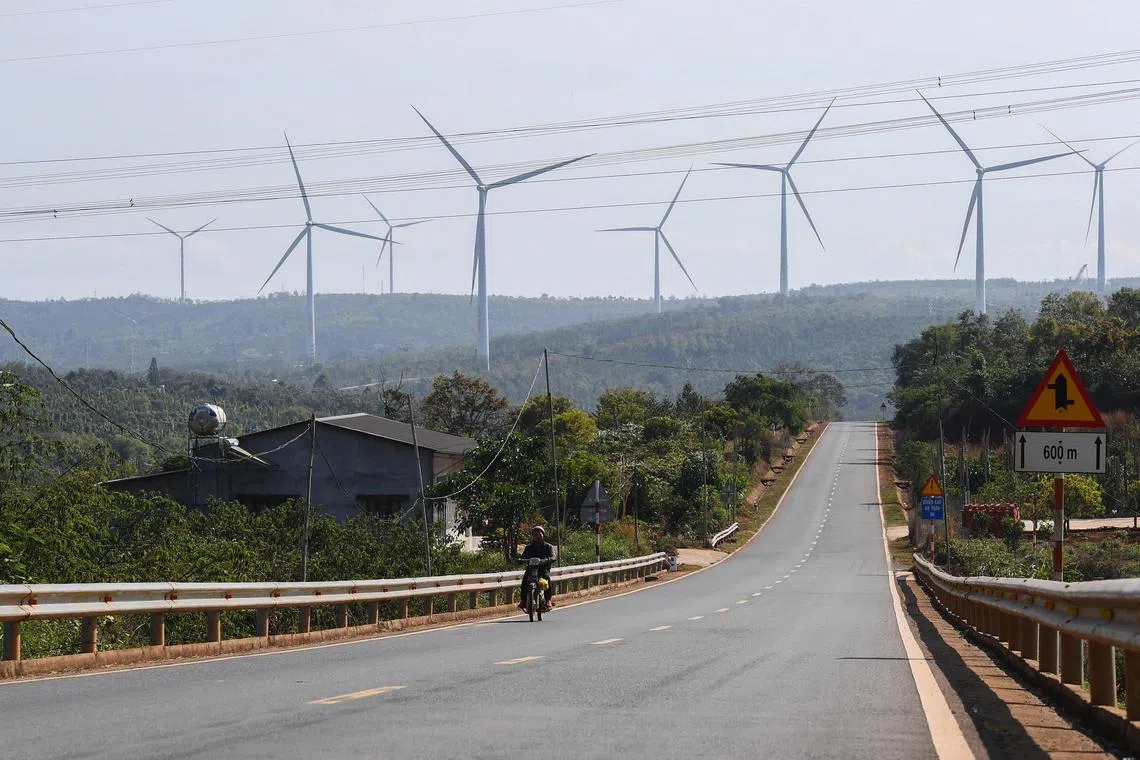Renewable energy main draw for green investments in South-east Asia
Sign up now: Get ST's newsletters delivered to your inbox

More than 70 per cent of 2022’s green investments in South-east Asia were in renewables.
PHOTO: AFP
SINGAPORE - Investors are most drawn to renewable energy for green investments in South-east Asia, according to a report released on Tuesday.
More than 70 per cent of 2022’s green investments in South-east Asia were in renewables, the South-east Asia Green Economy 2023 report found.
A collaboration between Bain and Company, Temasek, GenZero and Amazon Web Services, the report showed that more than half of green investments in South-east Asia were made in Singapore and Indonesia.
Total investment in renewable energy in Singapore from 2020 to 2022 reached around US$1.3 billion (S$1.75 billion).
More than 55 per cent of green investments in South-east Asian countries made in 2022 were by foreign investors, both within and outside the region.
Singapore is the most active investor in the region, being involved in 30 per cent of deals in the past three years.
But overall, green investments in South-east Asia dipped 7 per cent to US$5.2 billion in 2022 compared with 2021, continuing a downward trend from previous years, the report found.
Green investments in Singapore are generally limited by the lack of natural resources, said Mr Dale Hardcastle, global head of carbon markets and director of the Global Sustainability Innovation Centre at Bain and Company in Singapore.
“In energy-related investment growth, Singapore has relatively lower solar photovoltaic and wind reserves as compared with other South-east Asian countries; and for nature-related investment growth, Singapore has minimal land and forest area to be developed,” he said.
Additionally, the report also found significant challenges relating to the higher capital costs mixed with insufficient returns, he added.
Some Singapore-based investors raised concerns that solutions like renewable energy cannot surpass high hurdle rates, unlike tech-focused solutions, said Mr Hardcastle.
A hurdle rate is the minimum rate of return required for a company or investor to move forward on a project.
Governments across South-east Asia have set climate ambitions, but not enough action has been taken to meet nationally determined contribution (NDC) targets by 2030, the report found.
The report highlighted that the nature and energy sectors, which contribute 85 per cent of South-east Asia’s total emission reduction targets, will be most critical to the region in meeting its NDC targets.
Despite abundant renewable energy resources, the slow approval and launch of infrastructure, lack of financial attractiveness, and regulatory uncertainty are holding back the region’s ability to fully realise its potential, according to the report.
“The energy sector will need to streamline its permit process, accelerate grid modernisation efforts to reduce congestion and curtailment risks, and increase financial incentives for renewables to accelerate the energy transition,” the report said.


